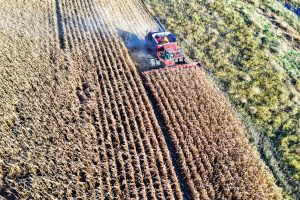10 Things You Should Know About Industrial Farming
Industrial farming has become a dominant method of food production worldwide, but its impacts on the environment, public health, and animal welfare are concerning. Here are ten important facts you should know about industrial farming:
1. Intensive Use of Chemicals
Industrial farming heavily relies on synthetic fertilizers, pesticides, and herbicides. While these chemicals aim to increase crop yields, they often lead to soil degradation, water pollution, and harm to non-target species.
2. Deforestation and Habitat Loss
The expansion of industrial agriculture has resulted in extensive deforestation, destroying valuable habitats for wildlife and contributing to climate change.
3. Water Depletion
Industrial farms consume vast amounts of water for irrigation, leading to water scarcity in many regions and exacerbating water-related conflicts.
4. Greenhouse Gas Emissions
Livestock production in industrial farming is a significant source of greenhouse gas emissions, contributing to climate change and global warming.
5. Loss of Biodiversity
Industrial farming practices often favor monocultures, leading to a loss of biodiversity and reducing the resilience of ecosystems.
6. Antibiotic Resistance
The overuse of antibiotics in industrial livestock farming contributes to the rise of antibiotic-resistant bacteria, posing a serious threat to human and animal health.
7. Animal Welfare Concerns
Animals in industrial farms are often subjected to overcrowded and inhumane conditions, leading to immense suffering.
8. Soil Erosion
Intensive cultivation practices in industrial farming can lead to soil erosion, depleting soil nutrients and reducing its capacity to support future crops.
9. Impact on Small Farmers
Industrial farming’s dominant presence can squeeze out small-scale farmers, limiting their access to resources and markets.
10. Public Health Risks
The intensive use of chemicals and antibiotics in industrial farming poses health risks to consumers through pesticide residues and the potential spread of antibiotic-resistant pathogens.
Industrial farming practices have widespread consequences on the planet and its inhabitants. As consumers, it is essential to be informed and advocate for sustainable and responsible alternatives to protect our environment, health, and future generations.
To learn more about the impact of industrial farming, visit the original article from United Nations Environment Programme (UNEP)












